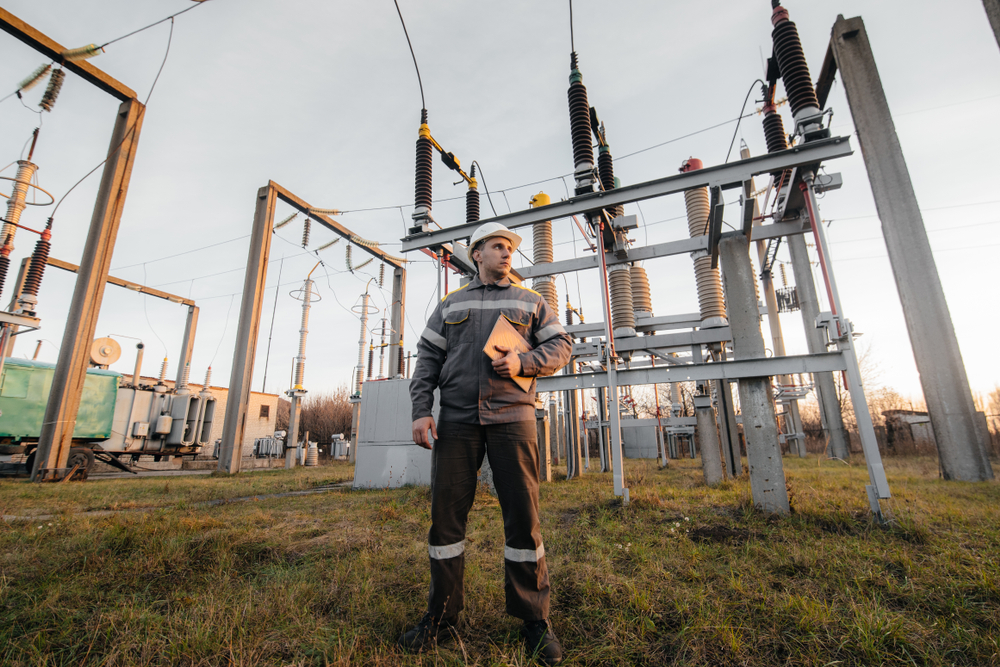When uncertainty is in the air, it’s logical to start thinking about what services may start bumping up prices, or worse, going out of business. For energy in particular, rising costs can make a significant impact for retailers, especially to the few dozen smaller retailers which may not have as large a customer base in comparison to the big three providers.
But what happens to an energy customer if their provider goes bust? Will they lose power to their homes? Are their unpaid bills forfeited? This Canstar Blue guide explores these questions and more to help you prepare.
On this page:
- How likely is it that my energy company will go under?
- What happens if my power company goes bust?
- Will I lose power if my energy company goes bust?
- What happens when I don’t have a power company?
- What is the retailer of last resort?
- Do I still have to pay my bill if my energy company shuts down?
- Can I trust smaller providers to keep my lights on?
- Should I switch to a bigger company to avoid the hassle?
- What can I do now to put myself in the best position?
How likely is it that my energy company will go under?
The chances of your power provider going bust aren’t huge, but that doesn’t mean it’s not worth thinking about. States and territories within what Australia calls the National Electricity Market, or NEM (NSW, VIC, QLD, SA, ACT and Tasmania), are seeing substantial growth in terms of energy retail competition. Basically, more power companies are popping up, each one seeming to offer cheaper rates and a more ‘modern’ customer experience. And while the 35+ electricity retailers in Australia may seem to some more than we need, it pales in comparison to places like the UK, where provider numbers have soared to 70+ at times.
Aussie bill-payers can benefit from this intense power price competition, but with the variable nature of the wholesale electricity market, it’s not inconceivable that some of the smaller guys could struggle in times of uncertainty.
What happens if my power company goes bust?
In the event that your energy company goes out of business, it’s likely that another provider will purchase its customer accounts and you’ll find yourself with a new logo on your bill. However, in the event that your account isn’t picked up by a new provider, you’ll be transferred to the ‘retailer of last resort’ for your area. Either way, it really shouldn’t be too big of a headache for you.
Will I lose power if my energy company goes bust?
No. Why? Because your energy supply has surprisingly little to do with your energy retailer. It’s actually your energy distributor that’s responsible for delivering electricity and gas to your home. While it’s true that, if you don’t pay your bills, your retailer could take measures to cut off your supply, in the situation that your energy company goes under, you’ll be contacted and advised what to do. In some cases, it may be that your provider is purchased by another company, meaning you’ll likely be transferred to the larger retailer.
What happens when I don’t have a power company?
The simple answer is, unless you’re disconnected from the grid, there’s a company handling your customer account, regardless of the situation. If your retailer goes under without plans put in place, you’ll move onto the ‘retailer of last resort’. Depending on where you are, this will most likely be one of the big three, Origin, AGL or EnergyAustralia. You’ll be contacted by that retailer to confirm your details, from which you’ll have the option to stay with that provider or choose a different one available where you live.
What is the retailer of last resort?
Basically, the energy regulators are good at planning for all eventualities, including that your small power company goes out of business. If this should happen, each area has a dedicated retailer of last resort to pick up any customer accounts when needed, to ensure you’re not left without a company to handle your energy billing and service. The retailer of last resort for your area will be one of the big three energy retailers in Australia – AGL, Origin or EnergyAustralia.
For this reason, there’s no risk in choosing to switch to a small energy company, because even if it goes out of business, you’ll still be taken care of.
Do I still have to pay my bill if my energy company shuts down?
Almost certainly, yes. In most cases your bill will be settled with your current provider, even if it is before your typical bill due date. Your next bill will come from the next energy company you intend to go with.
Can I trust smaller providers to keep my lights on?

The ‘quality’ or ‘reliability’ of your power has little to do with what energy retailer you choose. The element of trust comes into play when considering how a company might conduct its service, and whether or not it’s using dodgy sales tactics to sign you up. The only reason you might be cut off from electricity is in the event of a blackout, power line maintenance or energy account default. Even in this case, you have to try pretty hard to get your power cut off.
Should I switch to a bigger company to avoid the hassle?
There’s no hard answer to what will be the best plan of action for your household, given the circumstances. However, if you’re on a plan from a smaller company that provides good service and is consistently offering low rates, there’s probably no good reason for you to switch away unless you have to. It’s the same amount of effort now that it will be in the event your current retailer goes bust.
What can I do now to put myself in the best position?
As far as we’re concerned, it’s business as usual, and it should probably be for you too. It’s in your interest to make sure you’re on a plan with comparatively low rates in your area, to give you the best chance of avoiding bill shock come pay up day.
When there’s your health to worry about, the last thing you’ll want to deal with is utility bill stress, so check out the table below to see how your power rates stack up against other plans in your area.
Energy Prices Compared
If you want the cheapest energy deal you can find, it often means switching to one of the smaller players. Check out some of the best deals from our database below.
Here are some of the cheapest published deals from the retailers on our database that include a link to the retailer’s website for further details. These are products from referral partners†. These costs are based on the Ausgrid network in Sydney but prices may vary depending on your circumstances. This comparison assumes general energy usage of 3900kWh/year for a residential customer on a single rate tariff. Please use our comparison tool for a specific comparison in your area. Our database may not cover all deals in your area. As always, check all details of any plan directly with the retailer before making a purchase decision.
Here are some of the cheapest published deals from the retailers on our database that include a link to the retailer’s website for further details. These are products from referral partners†. These costs are based on the Citipower network in Melbourne but prices may vary depending on your circumstances. This comparison assumes general energy usage of 4000kWh/year for a residential customer on a single rate tariff. Please use our comparison tool for a specific comparison in your area. Our database may not cover all deals in your area. As always, check all details of any plan directly with the retailer before making a purchase decision.
Here are some of the cheapest published deals from the retailers on our database that include a link to the retailer’s website for further details. These are products from referral partners†. These costs are based on the Energex network in Brisbane but prices may vary depending on your circumstances. This comparison assumes general energy usage of 4600kWh/year for a residential customer on a single rate tariff. Please use our comparison tool for a specific comparison in your area. Our database may not cover all deals in your area. As always, check all details of any plan directly with the retailer before making a purchase decision.
Here are some of the cheapest published deals from the retailers on our database that include a link to the retailer’s website for further details. These are products from referral partners†. These costs are based on the SA Power network in Adelaide but prices may vary depending on your circumstances. This comparison assumes general energy usage of 4000kWh/year for a residential customer on a single rate tariff. Please use our comparison tool for a specific comparison in your area. Our database may not cover all deals in your area. As always, check all details of any plan directly with the retailer before making a purchase decision.
Image credits: Andrii Medvednikov/shutterstock.com


Share this article